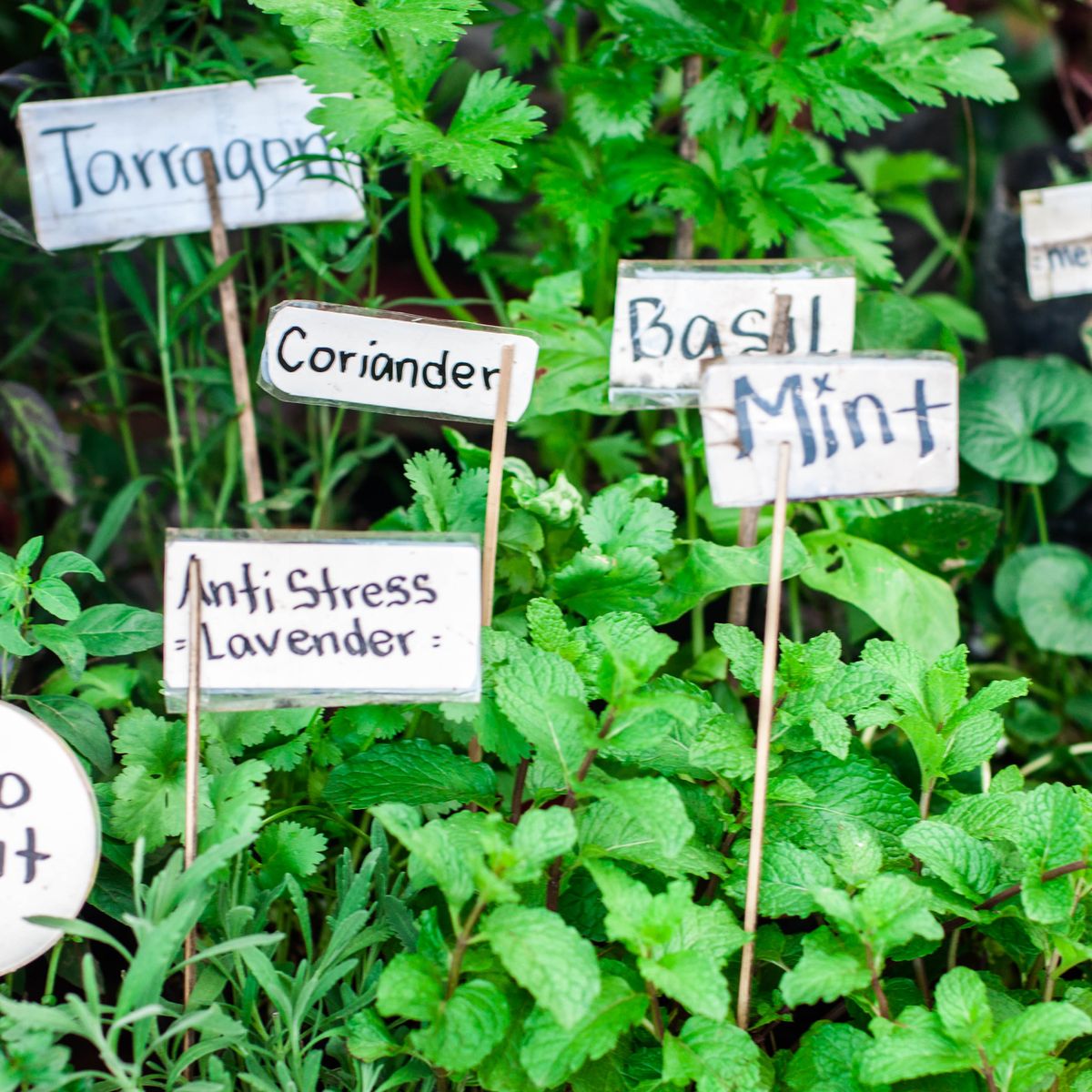Herb Gardening:
Welcome to the wonderful world of herb gardening, where you can cultivate your own little green kingdom right in your backyard! 😊 If you’ve ever wanted to explore the joys of growing your herbs for cooking, aromatherapy, or even medicinal purposes, you’re in for an exciting journey. 🌿 In this introduction, we’ll dive into the basics of herb gardening, providing you with all the tools and knowledge you need to get started on your herbal adventure. So, let’s roll up our sleeves and dig in!
So, what exactly is herb gardening, you ask? Well, it’s the art of growing and nurturing a wide range of herbaceous plants that are valued for their culinary, aromatic, and therapeutic qualities. From fragrant basil and soothing chamomile to spicy cilantro and vibrant lavender, the world of herbs is as diverse as it is enticing. Whether you have a sprawling garden or just a windowsill, herb gardening caters to all spaces and skill levels. So, let’s get ready to sow, water, and watch these amazing plants flourish and share their abundance with us.
Now that we’ve piqued your curiosity, it’s time to unveil the endless possibilities that herb gardening holds. Not only will you have access to fresh, organic herbs at your fingertips, but you’ll also be able to learn about botany, experience the calming effects of gardening, and experiment with different flavors in your recipes. Plus, herb gardening is a great way to connect with nature and increase your appreciation for the world around you. So, grab your gardening gloves, and let’s embark on this delightful herb-filled journey together! 🌱
Are you interested in cultivating your own herb garden? Discover the joys of herb gardening and elevate your culinary creations with fresh, flavorful herbs. Learn how to get started with herb gardening and step up your culinary game. From selecting herbs to caring for them, we’ll guide you through the process. With our expert tips, you’ll soon be enjoying the satisfaction of growing your own herbs in no time!
:max_bytes(150000):strip_icc()/planning-a-herb-garden-1402617-05-a1645996200740319a9fddacb22c8fca.jpg)
Herb Gardening: The Ultimate Guide to Growing Your Own Herb Garden
Why Herb Gardening is a Wise Choice
1. Fresh Flavor in Every Meal
2. Cost-Effective and Sustainable
3. Therapeutic and Medicinal Benefits
Choosing the Right Herbs for Your Garden
1. Culinary Delights: Taste and Aroma
2. Climate and Growing Conditions
3. Available Space and Container Gardening
The Basics of Herb Gardening: Planting and Care
1. Preparing the Soil
XXXXXXXXXXXXXXXXXXXXXXXXXXXXXXXXXXXXXXXX
2. Planting Your Herbs
3. Providing Adequate Water and Sunlight
4. Pruning and Harvesting
5. Pests and Disease Management
6. Long-Term Care and Winterizing
Harvest and Enjoy: Making the Most of Your Herb Garden
1. Culinary Creations
XXXXXXXXXXXXXXXXXXXXXXXXXXXXXXXXXXXXXXXX
2. Herbal Infusions and Teas
XXXXXXXXXXXXXXXXXXXXXXXXXXXXXXXXXXXXXXXX
3. Herbal Remedies and Beauty Products
XXXXXXXXXXXXXXXXXXXXXXXXXXXXXXXXXXXXXXXX
Ultimately, herb gardening is a delightful and enriching hobby that offers a wealth of benefits beyond the pleasure of growing your own herbs. From enhancing the flavors of your meals to promoting sustainability and nurturing your well-being, herb gardening is a journey of discovery and self-sufficiency. So, roll up your sleeves, get your hands dirty, and embark on an herb gardening adventure that will leave you with a newfound appreciation for the wonders of nature.
Key Takeaways – Herb Gardening
- Herb gardening is a fun and rewarding hobby.
- You can grow herbs in containers or directly in the garden.
- Herbs like basil, rosemary, and mint are easy to grow for beginners.
- Herbs need well-drained soil and at least 6 hours of sunlight per day.
- Regular watering and pruning help herbs thrive and stay healthy.
Frequently Asked Questions
Welcome to our FAQ on herb gardening! Whether you’re a beginner or experienced gardener, we’re here to answer your questions and help you grow a thriving herb garden. Check out the following Q&A for tips, advice, and inspiration.
1. How do I start an herb garden?
To start an herb garden, begin by choosing a suitable location that receives at least 6 hours of sunlight per day. Next, prepare the soil by removing any weeds or grass and adding compost or organic matter for nutrients. Decide on the herbs you want to grow, considering their sunlight and watering requirements. You can sow herb seeds directly into the soil or start with nursery-bought plants.
Once planted, water your herbs regularly, making sure the soil is moist but not waterlogged. Mulching around the plants can help retain moisture and prevent weeds. As your herbs grow, remember to trim and harvest them regularly to promote new growth and maintain their shape. Enjoy the aromatic flavors and fragrance of your fresh herbs!
2. What are some common herbs that are easy to grow?
If you’re new to herb gardening, starting with easy-to-grow herbs is a great idea. Some common herbs known for their simplicity include basil, mint, parsley, chives, and thyme. These herbs are generally hardy and can tolerate a range of growing conditions. They also offer a diverse range of flavors and can be used in various culinary dishes.
Basil, for example, is a popular herb that thrives in warm weather and adds a fresh, sweet taste to dishes. Mint is another versatile herb that grows quickly and can be used for teas, desserts, and savory dishes. Parsley is easy to grow and provides a vibrant green garnish, while chives offer a mild onion-like flavor that complements a wide range of dishes. Lastly, thyme is a perennial herb that grows well in pots or garden beds and adds a savory touch to soups, stews, and roasted vegetables.
3. How often should I water my herb garden?
The watering frequency for your herb garden will depend on various factors, such as the weather conditions, the type of herbs you’re growing, and the soil type. As a general guideline, most herbs prefer soil that is evenly moist but not waterlogged. You can check the moisture level by sticking your finger about an inch into the soil. If it feels dry at that depth, it’s time to water.
During hot summer months, herbs typically require more frequent watering, while in cooler seasons, they may need less. It’s important not to let the soil dry out completely between watering sessions, as this can stress the herbs and affect their growth. However, avoid overwatering, as this can lead to root rot and other diseases. Observing your plants and adjusting the watering routine accordingly is the best way to ensure healthy herb growth.
4. Can I grow herbs indoors?
Yes, you can definitely grow herbs indoors! Many herbs adapt well to indoor growing conditions, making them accessible year-round. To grow herbs indoors, choose a sunny spot near a window that receives at least 4-6 hours of sunlight per day. If you don’t have sufficient natural light, you can also supplement it with specialized grow lights.
Use well-draining soil and appropriately sized containers with drainage holes to prevent overwatering. When it comes to watering, monitor the soil moisture levels and adjust accordingly. Indoor herbs may have slightly different watering requirements compared to outdoor plants due to factors like air conditioning and heating. With proper care and attention, you can have an indoor herb garden that adds fresh flavors and greenery to your home.
5. How can I dry and store herbs?
Drying herbs is a great way to preserve their flavors and extend their shelf life. To dry herbs, harvest them when they are at their peak, preferably in the morning after the dew has dried. Gather small bunches of herbs and tie them with string or use a rubber band.
Hang the herbs upside down in a dry, well-ventilated area away from direct sunlight. It usually takes around 7-10 days for herbs to fully dry. Once dried, remove the leaves from the stems and store them in airtight containers in a cool, dark place. You can also crush the dried leaves into smaller pieces or grind them into a powder as needed.
When using dried herbs, it’s best to add them during cooking or steeping to allow the flavors to infuse into the dish. Properly dried and stored herbs can last for several months or even up to a year, ensuring you have a supply of homegrown flavors all year round.

HERB GARDENS BEGINNERS GUIDE || HOW TO || GARDEN BASICS
Summary
Growing your own herbs is a fun and rewarding activity. By following a few simple steps, you can have fresh herbs right at your fingertips. First, choose the right herbs for your needs and plant them in well-draining soil. Remember to water them regularly and give them enough sunlight. As your herbs grow, don’t be afraid to harvest and use them in your cooking. With a little effort, you can create your own herb garden and enjoy the freshness and flavor of homegrown herbs in your meals.
In addition to the culinary benefits, herb gardening also offers a chance to connect with nature and promote biodiversity, as herbs attract beneficial insects. It’s a great way to learn about plants and their uses while having fun. So, whether you have a big backyard or just a small balcony, give herb gardening a try and enjoy the many benefits it brings. Happy gardening!
